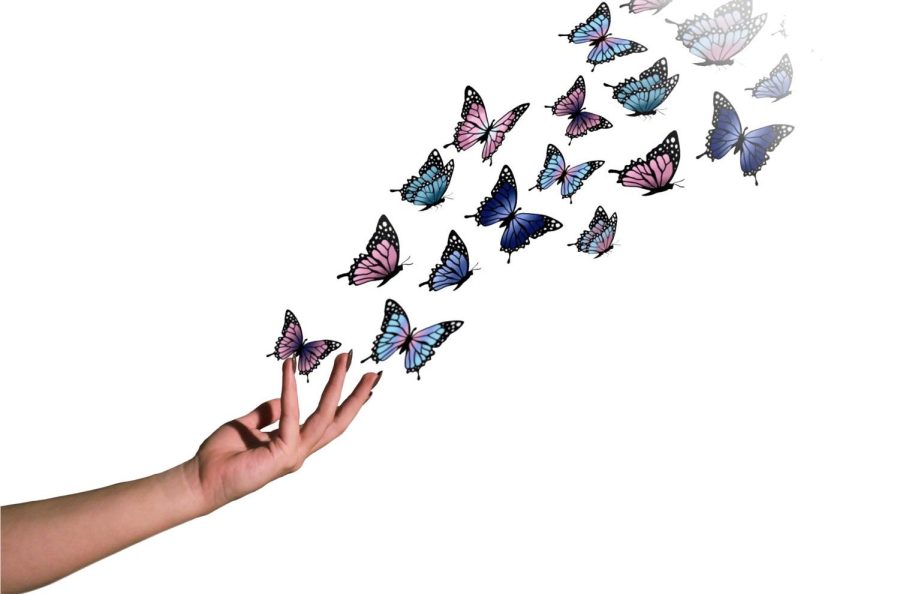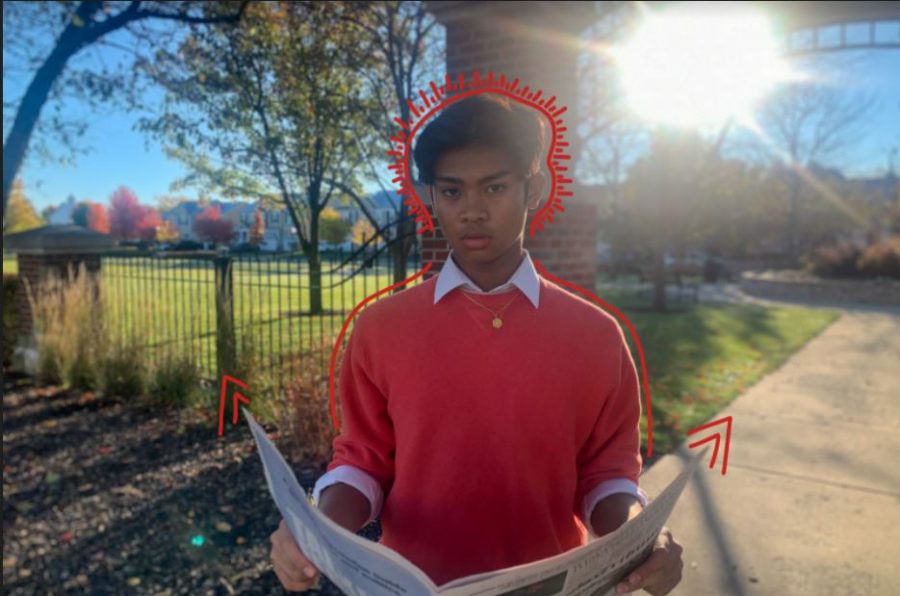Your phone vibrates twice. It has to be a message. No. Instead, a tiny blue bird and a short note appear on the lock screen.
“You were mentioned in a Tweet.”
Face it, being mentioned by someone else on Twitter tends to generate some excitement to the day. Reading that tiny message builds that excitement. You swipe. As the screen loads, the anticipation begins to feel as though it is going to crawl right from beneath your skin. It’s odd. Feeling that much excitement from something as simple as 140 characters, and you aren’t even sure what those characters might say or mean.
The now iconic blue fills the top sixth of your phone and a list of mentions, favorites and retweets fill the screen.
As you read the latest Tweet, the feeling of excitement is slowly being drained from you. Your fingers tingle and a sense of happiness dulls to pain.
“Why don’t you go kill yourself @Name. You don’t deserve to live you piece of ****! #tattletail”
You contemplate. The color slowly fades from your face. Kill myself? Should I?
This type of situation seems all too common now with the increase of social media use. Pulling up Twitter, Facebook, Instagram or another social media channel is simple. Sending out a quick Tweet or post is easy. Retracting hateful words, that’s a different story. The cyberbully is used to using this language. The victim is used to hearing it. The act of cyberbullying is becoming more common. It is an act of H8 on screen.
School
Cyberbullying is a problem that can be found at Antioch Community High School as well as in the Antioch Community. When students at ACHS are affected by cyber bullying, some reach out to the school for help. Many share their experiences regularly with school psychologist Christine Kasbohm and social worker Joseph Loffredo.
One of the issues of cyberbullying is the ignorance of the dangers and effects it can cause. Every action taken has consequences, and that includes those actions that occur online and through cell phone use.
“We try the best we can to warn students and help students learn different ways of expressing things instead of turning to cyberbullying. We try the best we can to educate on the dangers, on the consequences, and all that,” said Kasbohm. “And sometimes, again, we’re just so unaware. Because there’s just so much out there that we don’t necessarily know what you guys [students] are doing on social media.”
While cyberbullying will always be present in society, the preventative action of educating young adults has the possibility of helping the situation.
Loffredo said, “We don’t tolerate it and we take action, but every case is different. There are different levels of cyberbullying. A lot of it could be addressed as more of a preventative measure to prevent it from getting worse as opposed to a situation that has gotten really bad.”
One preventative action that can be taken is the checking of cell phones and social media accounts by parents.
“I think the difficult thing is not all parents understand [cyberbullying], and not all parents exactly know how to monitor all this stuff and what the best way is,” said Kasbohm.
Many cyberbullying incidents take place on the top social media sites, such as Facebook and Twitter. Since what is on the Internet can never be completely deleted, it is smart for students to think twice before posting.
Kasbohm said, “I think it’s just education on that and a lot of people forget that what’s put on social media is pretty much there forever. It’s not going to go away. Even if you delete it, it can be found.”
For students at ACHS, there are many people available to talk to about cyberbullying situations and events. Speaking out about cyberbullying may be the most challenging part for some, but it helps to share the story with a trusted person.
Loffredo said, “Getting help-that could be talking to parents, talking to a dean, talking to me, psychologists or counselors. Think of how many people are available to support them, but if we don’t know, we can’t do anything.”
Monitoring cyber bullying falls under multiple realms in school jurisdiction. There are far too many reasons to why cyberbullying is a common norm for high school students. A huge reason is because the bully thinks cyberbullying is a safer way to be mean.
“[Cyberbullying] falls out of school. Immediate attention with bullying takes place and is quickly addressed. If I suspect that a student is being bullied I try to take a look at what they are talking about. There is a lot of investigative research and if it turns out that the suspected child is being cyberbullied, then we provide emotional support for it,” said Kasbohm. “They say knowledge is power. It is important to keep in mind of a few simple questions when a person goes online: What are you using it for? When do you need to stop? What do you need to report?”
It is essential to be fully aware of all the possible situations, whether positive or negative, that can occur when online and using social media. Kasbohm’s advice to users of social media sites is to “always protect yourself. Beware of people that can be mean. Report. If [bullying] becomes too much, get off the media site and delete your account.”
ACHS Dean Wilbur Borrero wants students to know that cyberbullying in the school will not be tolerated.
“I believe cyberbullying is a reality and very sad. Victims are subjected to ridicule, exclusion, rumors and other hurtful comments, often for others to see. Bullies believe they can hide behind a keyboard, or other electronic device, and demean an individual or group of people while attempting to take away their dignity. It is something ACHS is absolutely intolerant of and a focus of many recent conversations. We are trying to get out in front of the educational opportunity regarding bullying, in general, and we are focused on broadening the resources we have to deal with situations we become aware of,” said Borrero.
ACHS Principal Bradford Hubbard agrees with Borrero. Hubbard hopes that administration can work with the students to be sure the issue is resolved and all parties are respected.
There are many roles that kids play. Kids can bully others, they can be bullied or they may witness bullying. When kids are involved in cyberbullying, they often play more than just one role. There are the ones who bully, the bullied, the ones who reinforce, the outsiders and the ones who defend. The general society will often say that there is one reason to why people bully others: the bully is simply jealous of the victim and sometimes the bully may not even realize that they carry jealousy with them. These children are the targets of bullying behavior. Some factors put children at more risk of being cyberbullied.
Hannah Epker, an ACHS alumna from the class of 2013, now attends College of Lake County as a freshman.
“I was the bully. I was so mean,” said Epker.
Epker began cyberbullying during her middle school years, when MySpace was popular. At the time of her bullying, Epker felt as if bullying gave her a sense of dominance to cover up her insecurities. Epker would bully others via social media over physical attributes, differences and people’s intelligence. Regularly, Epker would call others degrading names.
“My best friend now was somebody who I wasn’t a big fan of in middle school and I remember making fun of her physical attributes and I publicly posted about this on Facebook. I know that what I said is definitely an insecurity that she probably still has somewhere inside of her mind. And I was the one who inflicted that,” said Epker.
In the moment, Epker felt better than her victims.
“[Cyberbullying] didn’t bother me. Now, I learned a lot about who I am. We’re all people and we deserve rights,” said Epker. “Another thing that really affected me was, even though I was already out of my bullying stage in high school, that’s when you started hearing about people killing themselves over things they had to see on the Internet and I realized that I was that person. I have said ‘you should kill yourself’ online. I’ve been that person.”
Epker soon realized the harm she did to her victim and their family. In middle school, Epker was picked on due to her weight and her tomboy style. Today, Epker takes pride in who she is. Instead of letting the teasing affect her, she takes it as an inspiration.
“I very well am aware of how others felt about me bullying them. I bullied more people I was personally connected with. I never got into trouble with the school, and not even with family. The victim’s family let me know that was I was doing was reflecting on me as a person and that it was wrong,” Epker said.
Epker’s past occasionally comes up in conversations, and even though she forgave herself for what she did, a small aspect of her past sticks with her to this day.
Victim
Freshman Aaron MacArthur was a victim of cyberbullying. As a middle-schooler, a small group would continuously tease MacArthur via Facebook about of the people he hung out with.
“I was really suicidal at the time. I just kind of went home and was really depressed. That’s the only way I could really deal with [cyberbullying],” said MacArthur.
MacArthur participated in therapy sessions for some time while he was cyberbullied.
“[Therapy] didn’t really help me a lot. They didn’t really know what I was feeling, so I just went there and acted like they were helping,” he said.
MacArthur believes that the experience changed who he is. Even more, the experience is one he wanted to share with others in hopes that the bullying will stop. The lasting impact cyberbullying has on people is devastating, yet it continues to occur.
***
At a young age, we are asked what it is that we want to be but then told what not to be. We were told that we must become what we are not, sacrifice who we are to inherit the mascaraed of what we will be. Standing up for yourself does not have to mean embracing violence. To this day, kids are still being called names. It’s hard to hold your ground when others want to bury you beneath it, you have to believe they were wrong. Cyber bullying is a trembling point in today’s world. It affects more than one would think.
In every person’s life, there will come a brief point when one feels down on themselves. Running for help from people who do not know how the experience feels like is tough. When being cyber bullied, it is important to document and report the behavior so that it can be addressed. If you or someone you know have been bullied in any way please see a guidance counselor, dean, administrator or parent immediately.








![The Black Lives Matter movement has become a growing trend in recent years. "Everything people post on Instagram and everything [related to] politics is a trend now" sophomore Kelsey Aviles said. Despite how serious of a topic it is, some individuals post about BLM specifically because it is trendy.](https://www.sequoitmedia.com/wp-content/uploads/2020/12/Untitled-Artwork-3-900x318.jpg)